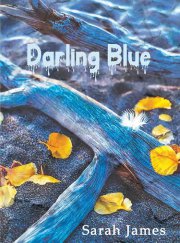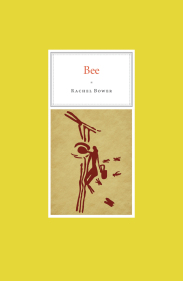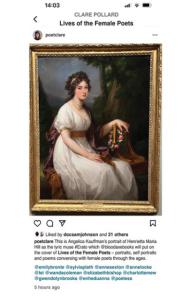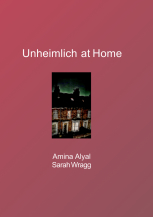
2017
AUGUST CONTRIBUTORS
Isobel Cunningham, Gabor G. Gyukics, Luisa A. Igloria, Brenda Kay Ledford, Joan Leotta, Alison Lock, Robert Garner McBrearty, Todd Mercer, Robert Okaji, Kenneth Pobo, PC Vandall, Mark Young, Aliesa Zoecklein.
ISOBEL CUNNINGHAM
Atlas Cab
In the tiled hall
brilliant sunlight streaming in through the skylight,
beside me the scuffed blue suitcase.
How to choose rest-of-your-life clothes?
And of all my books, which ones to take now?
No doubt there will be negotiating sessions in future.
Just in case, take that complete Katherine Mansfield.
Passport, money, underwear, my mother and grandmother’s
framed photographs.
Through the frosted glass
I saw the cab stop. I opened the door
before the driver could ring the too-loud bell.
He took my case without a word.
Into the back seat, that satisfying clunk
as the door of the solid car closed.
The pumpkin-hued leaves of fall screamed at a dazzling blue sky.
He turned his Persian face
“Where to?”
Isobel Cunningham writes poetry and fiction. She self published a book of poetry in 2015 entitled Northern Compass. Her blog is isobelmtl.wordpress.com. She has been published on line by Silver Birch Press and Rat's Ass Review.
Back to POETRY ARCHIVE
GABOR G GYUKICS
conjecture or else erased by suicide
silence slightly opens
gives room for the sounds
fussing around
as soon as the sounds enter
they stop fussing
become one with
silence
the sounds stuck outside
knock together
waiting for silence
to open again
patch on the foghorn
under the wings of a dead angel
the moon is making love
to the sun
the negative of their bodies
lie in every river bed
mountain range
dirt road
next to your footprint
in every ditch
by the walnut tree
you’ll find a piece
of the moon
and not far from it
under the plum tree
shines a broken part
of the sun
Gabor G Gyukics (b. 1958) Hungarian-American poet, literary translator is the author of 7 books of original poetry, 4 in Hungarian, 2 in English, 1 in Bulgarian and 11 books of translations including A Transparent Lion, selected poetry of Attila József and an anthology of North American Indigenous poets in Hungarian. He writes his poems in English (which is his second language) and Hungarian. His latest book titled a hermit has no plural was published by Singing Bone Press in the fall of 2015).
Back to POETRY ARCHIVE
LUISA A. IGLORIA
Signs and Wonders
“Who wants to reach inside the marvelous?”
Tung-hui Hu
I begin with what I have
and go on toward all I’ve ever
wanted. How beautiful the film
of moisture on the grass, not yet
taken by the heat. Once, a man
in a great coat stood on that
street corner, raised both
his arms, and solemnly twirled
without stopping. Here at the end
of the fence, the metal newel has two
indentations that give it the familiarity
of a face. How still the river is at midday—
as if all the wet, bright spirits
have decided to lie down for a nap.
Some days the sun shines high from its balcony but not unkindly, like the hostess at a party scattering good luck coins and candy to the children gathered below. You used to cut my hair in the garden: I sat on a stool under the guava tree, with an embroidered towel fastened around my neck. Fringed across the forehead, my hair never grew past my shoulders. When the ends began to curl like upturned fingers against my shoulders, it was time to trim. The shadow of my head reflected in the kitchen window behind, or appeared on the railing. When you were done you shook the shorn locks from my nape, the flocked towel like a matador’s cape. One night you woke me from sleep and carried me on your back, walking through thigh-high grass. Where did we go? I do not remember, only that a south wind slammed the corncrib door. I open and close my hands. Sometimes I find a wispy hair, or a sweet; sometimes a coin whose currency has dulled, but not its glimmer.
Luisa A. Igloria is the winner of the 2015 Resurgence Prize (UK), the world's first major award for ecopoetry, selected by former UK poet laureate Sir Andrew Motion, Alice Oswald, and Jo Shapcott. She is the author of the chapbooks Haori (Tea & Tattered Pages Press, 2017), Check & Balance (Moria Press/Locofo Chaps, 2017), and Bright as Mirrors Left in the Grass (Kudzu House Press eChapbook selection for Spring 2015); plus the full length works Ode to the Heart Smaller than a Pencil Eraser (selected by Mark Doty for the 2014 May Swenson Prize, Utah State University Press), Night Willow (Phoenicia Publishing, Montreal, 2014), The Saints of Streets (University of Santo Tomas Publishing House, 2013), Juan Luna’s Revolver (2009 Ernest Sandeen Prize, University of Notre Dame Press), and nine other books. She teaches on the faculty of the MFA Creative Writing Program at Old Dominion University, which she directed from 2009-2015.
www.luisaigloria.com http://www.poetryfoundation.org/bio/luisa-a-igloria
Back to POETRY ARCHIVE
BRENDA KAY LEDFORD
Mountain Sisters
In memory of:
Poet Katherine Stripling Byer
The syrup mill perfumes
a fog-chocked morning,
sunrays break through poplars,
the rain crow’s mournful solo.
The Blue Ridge Mountains
hover over the Tuckasegee River
meandering through Cullowhee.
Time creeps in the coves,
the past unfolds
as a mountain poet
spills words as a Crazy Quilt
unraveling on the page.
Sisters united in spirit,
sunrise to sunset toiling
to care for their families;
isolation as a yoke.
The painful beauty,
a chilled breeze;
the mountain woman grasps
her black shawl.
Brenda Kay Ledford is a member of NC Writer's Network. Her work has appeared in many journals. Aldrich Press published her poetry book that won the 2015 Paul Green Award from NC Society of Historians. She blogs at: http://blueridgepoet.blogspot.com
Back to POETRY ARCHIVE
JOAN LEOTTA
At Fatima
Against darkness—
of loss
of grief
we lit a candle
for her brother,
my son.
We breathed in the
subtle sweetness
of beeswax around us.
Our candle's flame
sent a small orb of hope
into a shadowy
corner of the shrine.
I smiled.
Joan Leotta’s poetry, short stories and essays appear or are forthcoming in Gnarled Oak, the A-3 Review, Kai-Xin (award winner), Spelk Fiction, Hobart Literary Review, Silver Birch, Postcard Poems and Prose among others. When not hunched over a computer she is walking, shell hunting and daydreaming at the nearest beach.
Back to POETRY ARCHIVE
ALISON LOCK
Advice to a son
Today, an icy rain falls. The forecast
for snow is no longer a shadow
on a screen but a pale spotted mist.
I think about how the weather ages,
how damp seeps between the bones,
knees crack when the northerlies
bring in the snow, and how you do not believe
me when I say your thin coat will never keep
the warmth of my hearth against your chest.
I stare through the window at the
bowed heads of the viburnum tinus
whose pink flowers belie the season.
Alison Lock's poetry and short stories have appeared in anthologies and journals in the UK and internationally. She has published a short story collection, two poetry collections, and a fantasy novella. www.alisonlock.com
Back to POETRY ARCHIVE
ROBERT GARNER MCBREARTY
The Revolutionary in Our Group
When the man
In ragged garb
And broken teeth
Came to our table,
Holding his hand out
For a coin, our revolutionary
Friend said don’t give it
To him, it will only slow
Down the revolution.
Our other friend said
But he’s hungry now.
The revolutionary said
It doesn’t matter,
The final revolution is
All that counts.
Thirty years later
Our revolutionary friend
Has an upstairs office
With a view
Of shady paths,
And makes good money
Lecturing about
The injustice to the poor.
He takes comfort
In his cozy home,
His handsome wife,
His children
With nice teeth
From their good dental plan,
While our man in ragged garb
Still waits, holding out his hand.
Taking Off
I think it’s time
for me to take off
I told my wife,
set out on my own.
I’m feeling sort of controlled,
you know, a little pushed around,
and time to get back to being a man
and doing what a man must do.
Fine, she said, take off.
Which way? I said.
Robert Garner McBrearty writes both fiction and poetry. His poetry has recently appeared in several literary journals, and his fiction has been widely published, including in the Pushcart Prize, Missouri Review, New England Review, North American Review. and in many other places. For more information about his writing, please see www.robertgarnermcbrearty.com
Back to POETRY ARCHIVE
TODD MERCER
One Doctor County (Easter Springs, 1910)
I save or stave off demise for many with staples of my house-call kit:
paregoric, laudanum, syrup of ipecac, sugar pills, smelling salts.
But the bag comes up lacking— sometimes it’s the saw, the shovel.
Not all my charges linger here on earth.
Farm families pay my fees with cherries or sides of beef.
Their migrant laborers trust I’ll set bones and slake fevers
but forget their names and which dirt lanes brought me
Carter’s pills and digitalis, bandages and coneflower.
I keep stitching needles in there, scalpel and retractor set,
leeches to scour infection, for thinning the blood.
My people are dying and birthing beside bean fields, in orchards.
They’re mangled in machinery faster than I cross the townships.
No time to monitor medical literature, against freak contingencies.
Leaving out again tonight. The kit’s heavy with stoppered bottles:
hazel and iodine, balm for burns, sedatives to soothe into slumber
or insensibility. I salvage the preservable. The inside zipper pocket
cradles enough narcotic for a quiet mercy sendoff, a favor to a friend.
Todd Mercer of the bustling Grand Rapids and rural Antrim County, Michigan won the Dyer-Ives Kent County Prize for Poetry (2016), the National
Writers Series Poetry Prize (2016) and the Grand Rapids Festival Flash Fiction Award (2015). His digital chapbook, Life-wish Maintenance,appeared at Right Hand Pointing.
Mercer's recent poetry and fiction appear in Eunoia Review, Literary Orphans and Sonic Boom.
Back to POETRY ARCHIVE
ROBERT OKAJI
Letter to Wright from Between Gusts
Dear Tami: The wind here speaks an undiscovered language:
diffident, it lurks in the background, stuttering, fingering
everything, shifting directions, mocking us, barely noticeable
until it gets pissed off and BLOWS! Then, shit happens. Pickle
jars appear in purses. Love notes remain unwritten. Shingles
flap across the lawn and idiots are elected to office (nothing new,
I know). When I was a kid I marveled at those fortunates who
lived under the same roof for years, for decades, entire lives, while
my family rolled around the globe, collecting vaccination scars
like postcards or nesting dolls. How interesting, I thought then,
to know and be known, to avoid the perpetual newcomer's
path. Having shared this house with my wife and various dogs,
birds, rodents, insects and arachnids for thirty-three years, I now
know this - home is not a stationary edifice. No cornerstone
defines it any better than fog rubbing the juniper's tired back,
or courting mayflies announcing warmth's arrival in their brief
pre-death interludes. Desire is a feckless mistress; after obtaining
the prize, we miss the abandoned and wonder what might have
been. When you arrive at your new town remember this: no one
is stranger to you than yourself. I speak from experience, having
absorbed differences at one end only to watch them emerge
hand-in-hand at the other, like newborn twins or nearly forgotten
reminders of an uncle's kindness in a year of typhoons and sharp
replies and rebuilt lives. Home is a smile, a lover's sleepy touch
at 3 a.m., or the secret knock between childhood friends reunited
after decades. It lives in soft tissue, not steel, and breathes water
and air, flame and soil and everything between. But it can't exist
without your mind and body lugging it around. I would like to
tell you what the wind is saying, but it's singing different tunes
these days, and my translation skills begin and end in that still
place between gusts, floating in the twilit air like so many empty
pockets. These are the only words I have. Not much to hang a hat
on, and I apologize for my shortcomings and inability to expound
with clarity. I speak in poetry, but mean well. May your moons
be bright and your winds wild yet gentle, even if you can't fathom
their meaning. I'll keep trying if you will. All the best, Bob.
Robert Okaji lives in Texas. He is the author of several chapbooks,
including From Every Moment a Second (forthcoming, Finishing Line Press), and his work has appeared in such journals as Crannóg,
Eclectica, and Taos Journal of International Poetry & Art, and may also be found on his blog at https://robertokaji.com
Back to POETRY ARCHIVE
KENNETH POBO
Rousseau’s Eve
She takes the fruit,
can’t guess
the many myths
to come from this exchange,
generations of women
pegged as doom bringers,
naive, dumb Dora’s
who squander bliss.
A white Eve
against the green. When she
hands Adam the fruit—
does he shiver?
After taking a bite, the lummox
runs for leaves,
making excuses
to blame her
while bedding her.
Magic
Jerry waits for magic,
leaves the porchlight on
in case it should pop
in at night. Jeff does what he can,
but the house still needs cleaning,
the lawn mowing.
Jeff shrugs off magic,
scrambles eggs and if it’s sunny
he’ll wash the car. Jerry
thinks today the talking goldfish
will appear.
Even for an afternoon,
even for a single minute ringed
with gold and stretching all the way
past the grave.
Kenneth Pobo has a new book from Circling Rivers called Loplop in a Red City. In addition to The Lake, his work has appeared in: Mudfish, Orbis, Hawaii Review, The Fiddlehead, and elsewhere.
Back to POETRY ARCHIVE
PC VANDALL
After a Poem by Adrienne Rich
A poem mushrooms and breaks in two; somewhere else. It’s by a house
where leafmold grows into grass and trees talk. It’s between our country
and the Russian woods. It’s making a strip of paradise
its own. Here is where the persecuted
shadows disappear but the fooled light stands still. The truth is, I dread
those dark shadows because I know the revolutionary
ways ghosts move closer to the edge of crossroads and disappear.
Dread isn’t necessary, so why do I
tell you where it is? I’ve abandoned these wants, this meeting
place in the mesh-ridden trees.
I won’t tell you because you won’t listen
to anything at all. Listen, have you not walked uphill to the old
meeting place near the unmarked road? They’re picking off people
who tell you to buy it but won’t sell it. It’s about time to want
it, make it, and own it because anything else
has already disappeared.
‘After a Poem by Adrienne Rich’ is a transposition of Adrienne Rich’s “What Kind of Times Are These?”, using most of the same words in my poem as she used in hers, as well as the form but subverting the order and meaning.
Father
I’ve seen your face at the grocery store,
fondling cantaloupes for ripeness,
on a bar stool with shooters lined up
in front of you, on the park bench hooting
after some girl who swims past you, your eyes
glazed and pressed to the goldfish bowl.
I can still see the smudge of your breath
on the glass. Yesterday, I heard music
and I looked up, half-expecting to see
you there. You’re the man yanking the child,
the tears a woman cries for and the guy
with hands held to his head as if fingers
were pistols, and yet dead, you’re alive
in the trees, potholes and in the roaring
thunder of a rainstorm where I count
the seconds without you. You are the grin
on my daughter’s face, the two-toned look
of my son and the furrow of lines
around my mother’s mouth. You are the dad
I try to tame, the father I conceive
into something bigger, brighter and better.
PC Vandall’s work has appeared in Rattle, Room, Carousel, Freefall, Kansas City Voices, The Journal of Compressed Creative Arts, Zetetic and many others. Her next book is forthcoming from Oolichan Books.
Back to POETRY ARCHIVE
MARK YOUNG
Threads
Later, after the
whales had
been re-
floated, she went
down to the beach
& lay in their
indentations. She
pressed her ear
against the wet
sand. The shell
principle, a tin-can
telephone. Though
not the sea
she heard singing
but the threads
leading back
from it.
Mark Young's most recent books are Ley Lines & bricolage, both from gradient books of Finland, The Chorus of the Sphinxes, from Moria Books in Chicago, & some more strange meteorites, from Meritage & i.e. Press, California / New York.
Back to POETRY ARCHIVE
ALIESA ZOECKLEIN
On David Hockney’s A Bigger Splash, 1967
Above the perfect blue, an up-splash,
a mid-air wandering of droplets
thinned to a veil. Not a tender scene
but high noon and naked.
A bank of low shrubs, two tall palms and
a chair. Everywhere else, the allure
of geometric perfection: stuc-
co wall, plate glass, strip of
cement—impeccably
clean. Not a lesson in suffering
unless you bring that with you. The pool
appears flat, swept, impenetrable,
but not, of course, impen-
etrable: Someone you’ve always known.
Someone you’ve never met.
In the high hills of another time.
Near the canyon you recognize. Here
is your rendezvous with desire,
what swims most silently
in you. Here is an ocean in min-
iature, your private underworld
of perpetual disappearance.
Aliesa Zoecklein won the 2014 Peter Meinke Award for her chapbook At Each Moment, Air. Her poems have appeared in Pleiades, Water-stone Review, Grist, Cimarron Review, Cream City Review among others. Aliesa lives with her wife in Gainesville, Florida where she teaches writing at Santa Fe College.
Back to POETRY ARCHIVE



